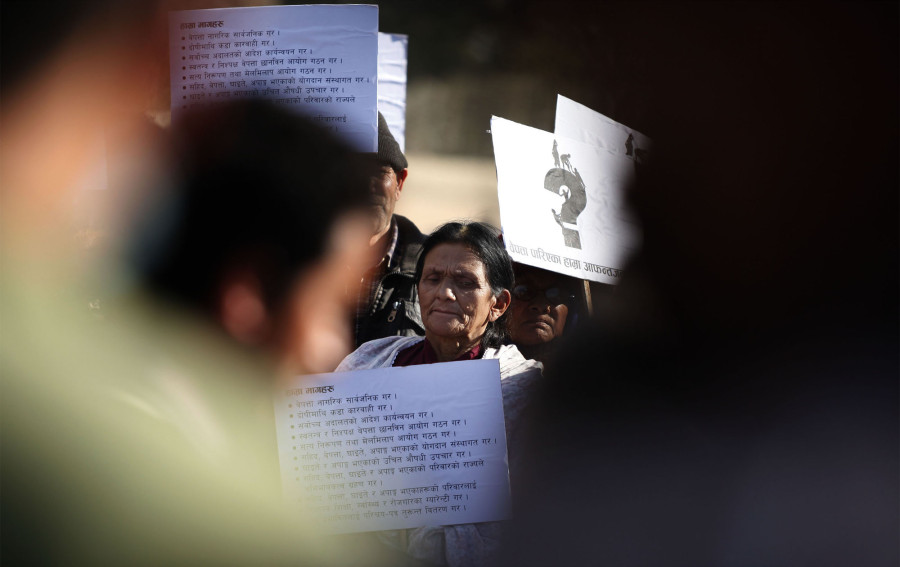National
Recommendation committee to consult with victims before picking transitional justice leadership
The move comes in place following concern from various international human rights bodies urging the government to take action
Binod Ghimire
Following increasing concerns from international human rights organisations, the recommendation committee has decided to consult with conflict victims before recommending names for new leaderships in two transitional justice bodies.
A meeting of the commission on Friday has also decided to urge the government to address the concerns international human rights organisations have regarding the amendment of the existing transitional justice act before the appointments are made. Issuing a statement on Monday, Amnesty International, International Commission of Jurists, Human Rights Watch, and TRIAL International asked Nepal to adopt a consultative and transparent appointment process, ensure the amendment is in line with international human rights standards and with the Supreme Court ruling, and come up with a plan to take the transitional justice process forward.
The statement from the four human rights organisations was issued just three months after five United Nations’ special rapporteurs in April expressed serious concerns over the selection process of new leadership in the transitional justice commissions.
Sharmila Karki, a member of the recommendation committee, said their Friday’s meeting was largely focused on the international organisations’ concerns and the steps the committee can take to address them. “The amendment to the Act is beyond our jurisdiction, therefore, we will be urging the government to step into the matter,” she told the Post. “We are open to what the consultations parties concerned, including the victims, have to say.” The recommendation committee, led by former Chief Justice Om Prakash Mishra, was formed in March, and has only collected applications for 10 positions in the two commissions. It has failed to finalise names, as the ruling and opposition parties are yet to reach an agreement over seat-sharing.
Victims of the decade-long insurgency and national and international human rights organisations have complained that the appointment process is not transparent and the Truth and Reconciliation Commission and Commission of the Investigation of Enforced Disappeared Persons cannot function as per expectation unless the Act is amended. The Supreme Court in 2015 had issued a ruling for the amendment in Enforced Disappearances Enquiry, Truth and Reconciliation Commission Act 2014 at par with international standards and the norms of transitional justice.
The court had struck down almost a dozen provisions in the existing laws and sought clarity on the categorisation of serious crimes, serious human rights violations and other crimes of a serious nature. The existing law is very ambiguous and opens the door for amnesty even in serious cases of human rights violations.
The conflict victims say they welcome the recommendation committee’s decision but consultations should be wider and meaningful. “The government should also hold parallel consultations for an amendment to the Act,” Gopal Shah, vice-chairman of Conflict Victims National Network, an umbrella body of the victims of Maoist insurgency, told the Post.
The victims say there should be no delay in the amendment to the Act and appointment in the two commissions as they are worried about the security of their complaints in the commission. The TRC has received 63,000 cases while 3,000 cases have been registered with the disappearance commission. The TRC and CIEDP are vacant since April 14 after the four-year term of the leadership expired.
***
What do you think?
Dear reader, we’d like to hear from you. We regularly publish letters to the editor on contemporary issues or direct responses to something the Post has recently published. Please send your letters to [email protected] with "Letter to the Editor" in the subject line. Please include your name, location, and a contact address so one of our editors can reach out to you.




 11.12°C Kathmandu
11.12°C Kathmandu














